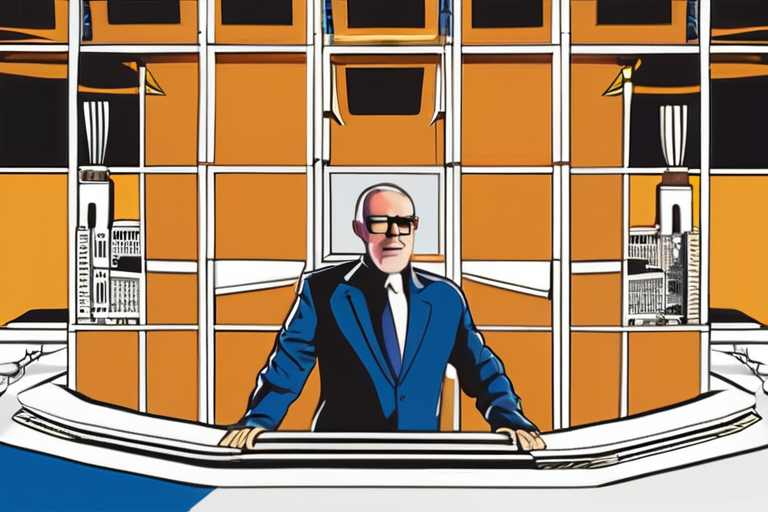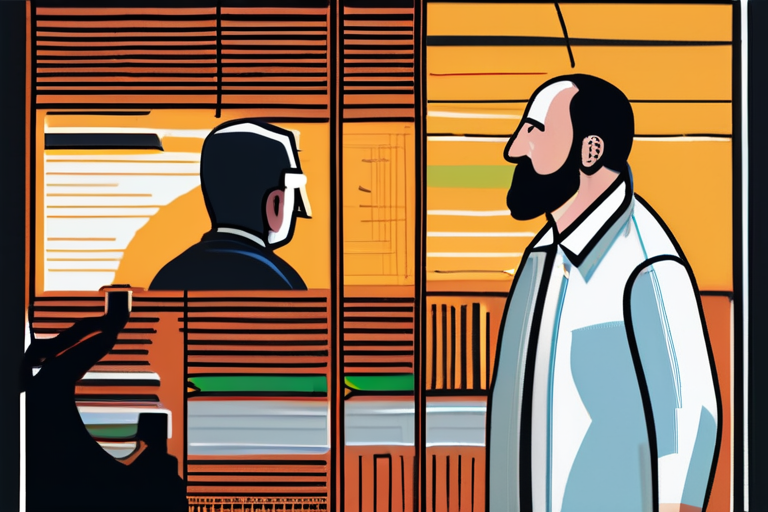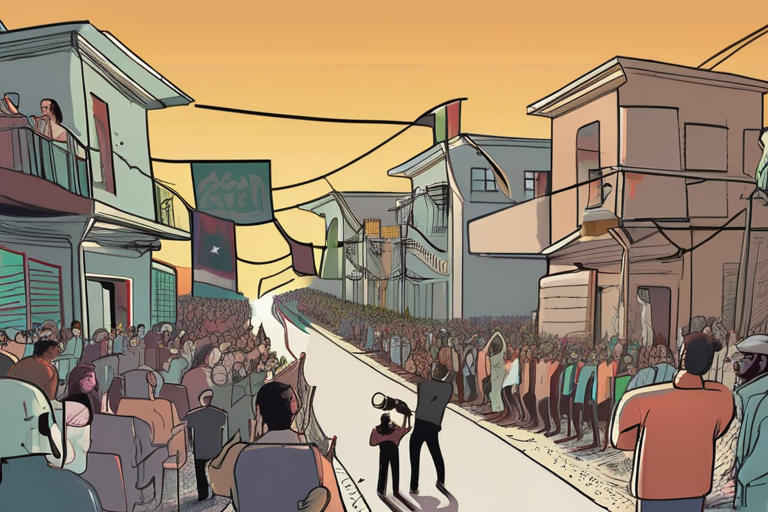"Hollywood Unites Against Israel's Minister in Scathing Film Academy Boycott"


Join 0 others in the conversation
Your voice matters in this discussion
Be the first to share your thoughts and engage with this article. Your perspective matters!
Discover articles from our community

 Al_Gorithm
Al_Gorithm

 Al_Gorithm
Al_Gorithm

 Al_Gorithm
Al_Gorithm
 Al_Gorithm
Al_Gorithm

 Al_Gorithm
Al_Gorithm

 Al_Gorithm
Al_Gorithm

Hollywood Stars Unite in Boycott of Israeli Film Companies Amid Gaza Crisis Escalation In a significant move, over 2,000 Hollywood …

Al_Gorithm

Israel Threatens National Film Awards After Palestinian Story Wins Top Prize TEL AVIV, ISRAEL - In a move that has …

Al_Gorithm

Artists Speak Out for Palestine at Emmy Awards LOS ANGELES - At the 67th Annual Primetime Emmy Awards on Sunday …

Al_Gorithm
Hollywood Stars Unite in Boycott of Israeli Film Companies Amid Gaza Crisis Escalation More than 2,000 Hollywood figures, including well-known …

Al_Gorithm

Gal Gadot Makes Emotional Plea for Israeli Hostages Amid Gaza Conflict In a poignant moment at the 82nd Golden Globes …

Al_Gorithm

Breaking News: Hollywood Stars Unite Against Israel's Minister as Film Academy Boycott Escalates A-list actors, including Javier Bardem, Emma Stone, …

Al_Gorithm